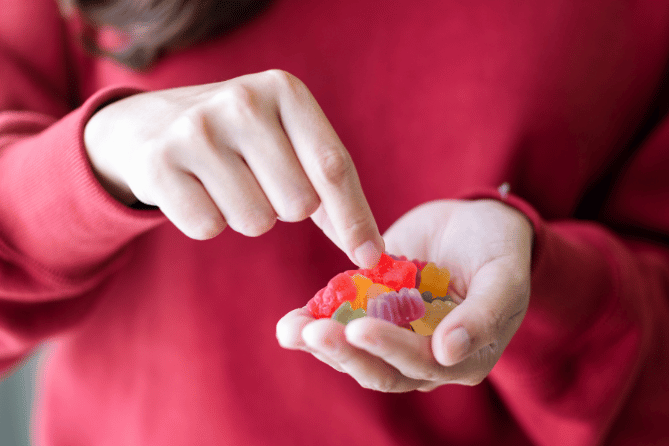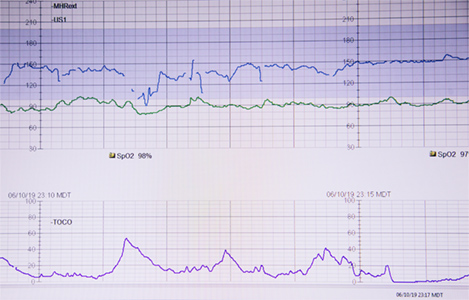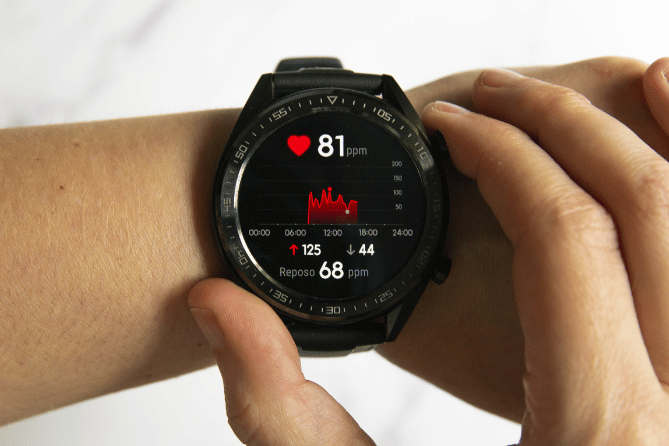Can you eat sugar free Jell-O during intermittent fasting? Yes, you can absolutely eat sugar free Jell-O while intermittent fasting! Jell-O is a perfectly fine food to have during your fasting period, as long as it doesn’t contain any added sugars. Sugar free Jell-O is a great option for those looking to stick to a strict fasting regimen, as it will not break your fast and will still provide you with some great nutrients.
Intermittent fasting is a great way to improve your overall health and lose weight, and there are many different ways to do it. Some people fast for 12 hours every day, while others may only fast for 24 hours once or twice per week. No matter how you do it, intermittent fasting can be a great tool.

Can you eat sugar-free candy while intermittent fasting?
There are different types of intermittent fasting, and you’ll want to check with a doctor or nutritionist to see if sugar-free candy is compatible with your specific type of fasting. Generally speaking, though, it’s recommended that you avoid eating anything during your fasting window. So, if you’re intermittent fasting for weight loss, it would be best to avoid eating any type of candy, even if it’s sugar-free.
That said, there are some people who do allow for a very small amount of caloric intake during their fasting window, usually around 500 calories or so. And as long as the majority of those calories come from healthy foods like vegetables and lean protein sources, then a little bit of sugar-free candy may.
Can you eat zero calorie foods sugar free Jell-O during intermittent fasting ?
Yes, you can eat zero calorie foods during intermittent fasting. In fact, it’s a good idea to eat lots of fiber-rich, water-rich vegetables and fruits during your fasting period. This will help you stay hydrated and feel full.
Some good zero calorie options include: cucumbers, celery sticks, leafy greens, tomatoes, berries, and grapefruit. These are all low in sugar and calories, but high in nutrients and antioxidants.
Does sugar free jell-o kick you in ketosis?
During a fast, your body will burn through its glycogen stores. Once these are depleted, your body will begin to breakdown fat for energy. Sugar free foods like jell o can help you stick to your fasting plan while still providing your body with some energy. Zero calorie foods can also be helpful as they won’t break your fast and won’t provide your body with any extra energy to store as fat. intermittent fasting is a great way to kickstart ketosis and can help you lose weight and improve your health.
What can I eat during 16 hours fast?
There are a lot of different opinions on whether sugar free Jell-O will kick you out of ketosis or not. Some people say that the artificial sweetener in Jell-O (aspartame) can trigger an insulin response and disrupt ketosis, while others say that as long as you’re fasting for at least 16 hours before eating any sugar free Jell-O, it won’t have a negative effect.
Personally, I think it’s best to avoid anything with artificial sweeteners when trying to get into ketosis, but everyone is different. If you’re curious about whether or not sugar free Jell-O will kick you out of ketosis for you specifically, I would recommend doing some experimentation.
How many calories does sugar-free jell-o have?
There are no calories in sugar-free jello because it is zero calorie. This means that it contains less than 5 kilocalories per serving. While this may seem like a negligible amount, it can add up if you’re consuming multiple servings per day or if you’re intermittent fasting and looking for food options that don’t contain any calories.
Some people choose to eat sugar-free jello while fasting because it’s a low-calorie option that doesn’t break the fast. Plus, jello is easy to digest and doesn’t tend to cause any gastrointestinal discomfort like some other foods might. If you’re looking for a tasty, zero calorie snack option, sugar-free jello is a good choice.
What should I eat when hungry on intermittent fasting?
There are a number of things you can eat when you’re hungry on intermittent fasting. Sugars, starches, and processed foods are off-limits, but there are still plenty of other options.
Zero calorie beverages like water, coffee, and tea are always a good choice. You can also have small amounts of Raw Honey or 100% pure maple syrup.
For protein, you can have bone broth or unsweetened Greek yogurt. Coconut oil is also a great option for satiety.
If you’re looking for something more substantial, try making a fat bomb. Fat bombs are high in healthy fats and low in carbs/sugar – they’ll help keep you full without breaking your fast.
How much weight can you lose in a week with intermittent fasting?
It really depends on the person. Some people might be able to lose up to 10 pounds in a week, while others may only lose a few. The most important thing is to make sure you’re drinking plenty of water and eating healthy, nutrient-rich foods during your feeding window.
Intermittent fasting is a great way to jumpstart your weight loss journey, and it can be especially beneficial if you’ve hit a plateau with traditional dieting and weight loss methods. That said, it’s not for everyone, so be sure to talk to your doctor before starting any type of fasting regimen.
Hope that helps!
How do I know if intermittent fasting is working?
There are a few things you can look for to know if intermittent fasting is working for you. One is that you’ll start to lose weight. This happens because when you’re not eating, your body starts to use up its stored energy reserves. You may also find that your clothes start to fit more loosely, and that your body composition changes (you may start to lose fat and gain muscle).
Your energy levels may also increase as the fast progresses. Many people report feeling more alert and having more sustained energy throughout the day. Finally, if you’re fasting for health reasons, you may notice improvements in biomarkers such as blood sugar levels, blood pressure, or cholesterol levels.
Do you go into ketosis when intermittent fasting?
Intermittent fasting is a great way to get into ketosis. When you’re fasting, your body doesn’t have any food to break down and so it starts breaking down stored fat instead. This process produces ketones, which are a type of energy that the brain can use instead of glucose.
So, when you’re intermittent fasting, your body is in a constant state of ketosis and you’re getting all the benefits that come with it – like weight loss, decreased inflammation, and better mental clarity. Plus, you don’t have to worry about counting calories or depriving yourself of food – you can just eat when you’re hungry and fast when you’re not. It’s really that simple.
How long does it take for your body to adjust to intermittent fasting?
It really depends on the person and how their body responds to fasting. For some, it can take a few days or even a week for their body to adjust. Others may find that they feel fine and don’t notice any difference at all.
There are a few things you can do to make the adjustment period easier on your body, such as eating more nutrient-dense foods and staying hydrated. You might also want to consider cutting out sugar and other simple carbs from your diet as they can make you feel more sluggish during fasting.
At the end of the day, intermittent fasting is a personal decision and everyone will have different results. Just listen to your body and see what works best for you!
Is it good to intermittent fast every day?
There are a few different ways to intermittent fast, but the most common is to limit your eating to an 8-hour window each day. During that time, you can eat whatever you want as long as it’s within your calorie allotment. This type of fasting has been shown to have some health benefits, such as weight loss and decreased insulin resistance.
That said, I don’t recommend fasting every day. I think it’s important to give your body a break from fasting every now and then so that it can reset and continue to reap the benefits. Personally, I intermittent fast 1-2 times per week.
Last Words
So, can you eat sugar free Jell O during intermittent fasting? The answer is yes! As long as your Jell O doesn’t contain any added sugars, it’s a perfectly fine food to have during your fasting period. Sugar free Jell O is a great option for those looking to stick to a strict fasting regimen, as it will not break your fast and will still provide you with some great nutrients. If you’re looking to start an intermittent fasting diet, be sure to give sugar free Jell O a try – you may just love it!







